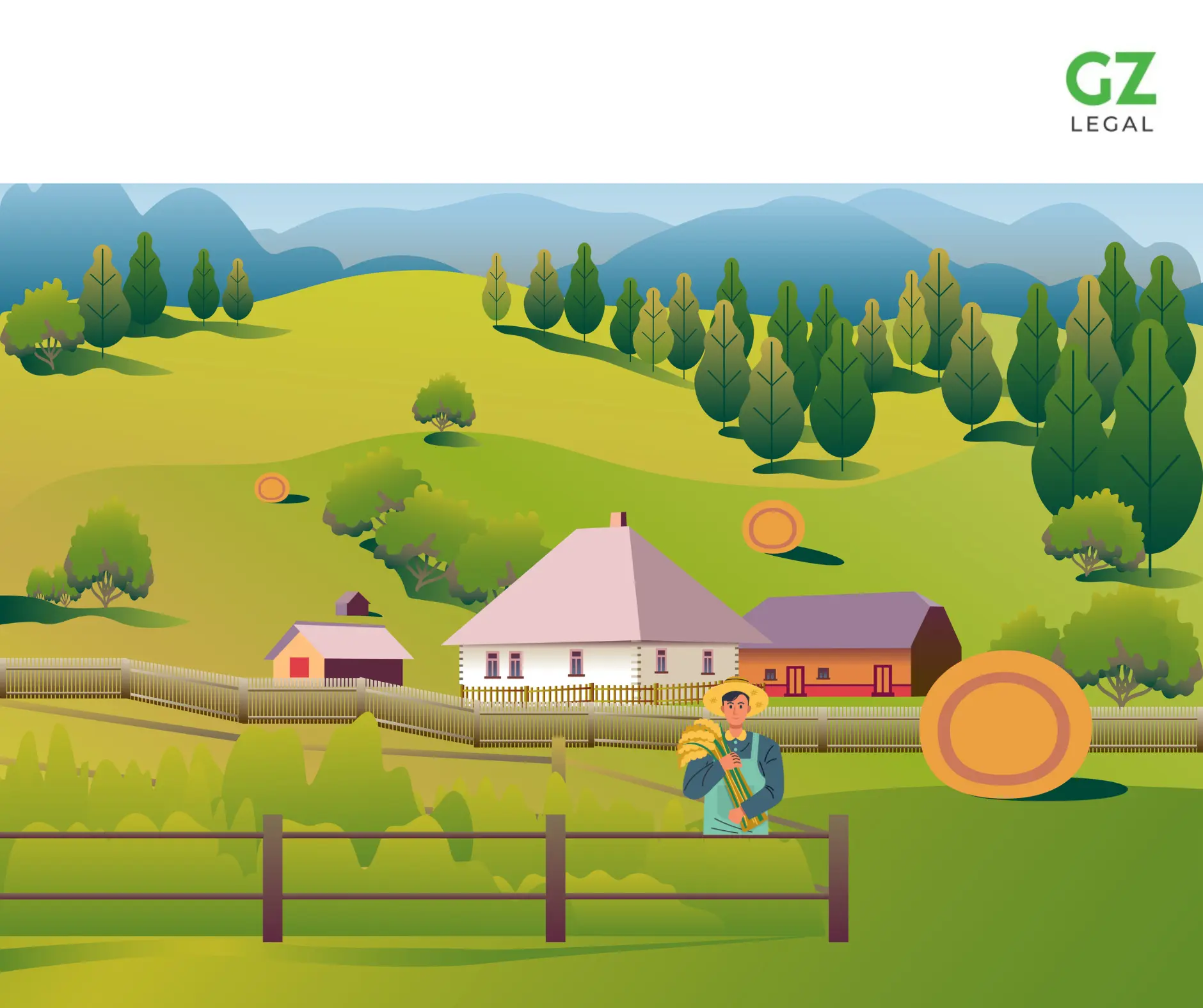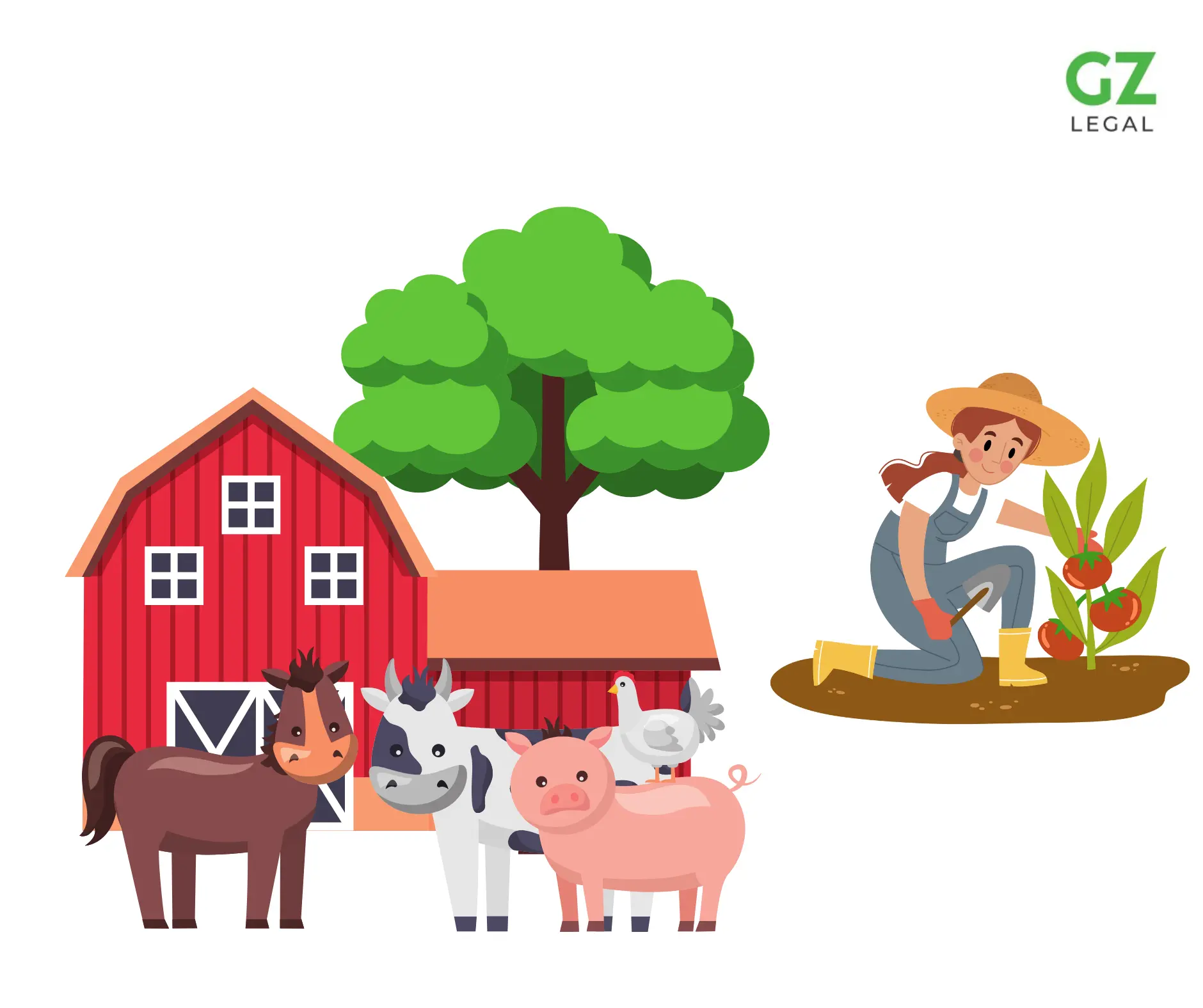Malcolm ZoppiSun Oct 15 2023
Contract Farming Agreement: A Comprehensive Guide for Successful Partnerships
A contract farming agreement is a joint venture between a landowner or occupier and a contractor. Learn more!
Contract Farming Agreement: A Comprehensive Guide for Successful Partnerships

Contract farming agreements have become an essential part of modern agriculture, providing opportunities for both landowners and contractors to collaborate and share resources within the farming industry. A contract farming agreement is a joint venture between a landowner or occupier and a contractor, with each party providing different capital inputs and sharing the costs of variable inputs such as labour, machinery, and other resources. This arrangement allows for a more efficient and profitable production process while reducing the risks associated with farming operations.
Under a contract farming agreement, the farmer provides land, buildings, and other fixed equipment, while the contractor is responsible for providing the labour and machinery required for the farming activities. Roles and operations are defined by the terms of the contract, which are based on the farmer’s business policies and objectives. This not only helps reduce operational costs but also allows both parties to focus on their core competencies and derive maximum benefits from their respective contributions.
Key Takeaways
- Contract farming agreements form a joint venture between landowners and contractors, sharing resources and costs for efficient agricultural production.
- Roles and operations are defined within the contract, allowing both parties to focus on their core competencies.
- These agreements help in reducing risks and operational costs, ultimately leading to a more profitable and sustainable farming industry.
Understanding Contract Farming
Nature of Contract Farming
Contract farming is an agricultural arrangement between farmers (producers) and buyers, where both parties agree in advance on the terms and conditions for the production and marketing of farm products. This type of agreement can be highly flexible and can involve varying degrees of farm management. In a contract farming agreement, the landowner or tenant (farmer) provides land, buildings, and fixed equipment, while the contractor provides labour and machinery. The contractor typically receives a guaranteed fixed yearly payment per hectare and potentially, a bonus payment from net profits.
Relevance in Agriculture Industry
Contract farming is growing in popularity within the agriculture industry, as it offers several benefits to both farmers and contractors. For farmers, it allows them to focus on their core farming business while sharing the risk associated with fluctuations in yield and market prices. Additionally, contract farming arrangements can provide access to advanced technologies, agronomic expertise, and efficient management practices, leading to more sustainable and profitable farming systems.
Participants in Contract Farming Business
Role of Farmers

In contract farming, as a farmer, your primary responsibility is to provide the land, buildings, and other fixed equipment necessary for the farming process. You are required to define your desired farming policies and objectives for your business. Your involvement in the day-to-day operations depends on the nature of the agreement with the contractor.
Additionally, you are responsible for:
- Ensuring compliance with relevant laws and regulations
- Maintaining communication with contractors
- Monitoring the overall progress of the agricultural activities
Role of Contractors

As a contractor, your role is to provide labour and machinery services to fulfil the farming activities as per the agreement signed with the farmer. Your duties mainly focus on the practical aspects of farming operations, including:
- Managing crop cultivation and harvesting
- Taking care of livestock, if applicable
- Implementing sustainable farming practices
- Ensuring timely delivery of quality produce
Moreover, you are responsible for communicating with the farmer and providing updates on the progress of the farming activities, as well as regularly assessing the performance of the enterprise in terms of productivity and efficiency.
Role of Landowners
In some situations, the landowner may be different from the tenant farmer. If you are a landowner involved in contract farming, your role is to lease the land to the farmer and negotiate the terms of the agreement. You may also invest in the farming infrastructure, such as buildings and fixed equipment.
As a landowner owner, your main responsibilities include:
- Ensuring the land is suitable for the intended farming activities
- Monitoring the lease and rent agreements
- Managing legal and contractual aspects of the arrangement
In contract farming, the collaboration between farmers, contractors, and landowners is essential for a successful enterprise. It is crucial to establish clear roles and responsibilities, maintain open communication, and adhere to the terms of the agreement for the benefit of all parties involved.
Contract Farming Agreements
Key Elements
A contract farming agreement is a joint venture between a landowner or occupier (Farmer) and a contractor. These agreements are commonly used in the agriculture industry, where the Farmer provides land, buildings, and other fixed equipment. In return, the Contractor provides labour, machinery, and expertise.
In a typical contract farming agreement, you will need to consider several key elements:
- Parties involved: Clearly identify the Farmer and Contractor, along with their respective roles and responsibilities.
- Payment terms: Outline the payment structure, which usually includes a guaranteed fixed yearly payment per hectare and a bonus payment from net profits.
- Duration: State the duration of the agreement and any provisions for renewal or termination.
- Risk-sharing: Describe how the parties will share the risks and benefits of the farming venture, including the sharing of costs for variable inputs and the distribution of surplus.
Standard Formats
Several organizations have developed standard formats and guidelines for contract farming agreements to promote responsible and fair practices. Examples of these guidelines include the Model Agreement for Responsible Contract Farming and the UNIDROIT/FAO/IFAD Legal Guide on Contract Farming.
When drafting your contract farming agreement, you may want to consult these resources to ensure compliance with international standards and best practices. Additionally, consider consulting with legal professionals to tailor the the farm agreement to your specific needs and local regulations.
Remember to clearly convey the terms and conditions, while maintaining a neutral and confident tone in the agreement. This approach will help both parties understand their responsibilities and foster a successful partnership.
Legal and Regulatory Framework

To ensure the success of your contract farming agreement, it is crucial to be familiar with and adhere to the relevant legal and regulatory framework. This includes understanding the specific laws and regulations governing contract farming in your jurisdiction, as well as any broader agricultural, environmental, and employment laws that may apply.
Some points to consider when evaluating your legal and regulatory compliance include:
- Ensuring that the agreement is properly structured to avoid being deemed a tenancy, partnership, or employment relationship
- Adhering to any specific laws or regulations governing contract farming, such as mandatory terms or reporting obligations
- Obtaining the necessary licences, permits, and certifications for your particular operations (e.g., crop production, livestock management, environmental protection)
- Meeting your obligations under broader agricultural and environmental laws, such as ensuring the responsible use of resources and adhering to best practice guidelines
- Complying with relevant employment laws and regulations, including providing appropriate working conditions and remuneration for any labourers involved in the agreement
By remaining vigilant in your compliance with the applicable legal and regulatory framework, you can help to minimise the financial risk, of disputes, claims, and potential penalties, and foster a successful and mutually beneficial contract farming agreement.
Frequently Asked Questions
What are the common types of contract farming agreements?
In contract farming agreements, the landowner or tenant (Farmer) provides land, buildings, and other fixed equipment while engaging another farmer (Contractor) who provides labour, machinery, and expertise. There are various types of contract farming agreements. Some common ones include:
- Traditional arable agreements: The farmer provides land and, where available, buildings, while the contractor supplies labour, machinery, management expertise, and carries out arable operations.
- Share farming agreements: The farmer and contractor both provide assets, such as land, buildings, machinery, and labour, and share the output and profits based on the agreed terms.
- Crop-specific agreements: These are tailored to individual crops or livestock enterprises, establishing specific terms and responsibilities for each party involved.
How do contract farming agreement prices vary?
Prices in contract farming agreements can vary depending on several factors, such as the type of agreement, the specific crop or livestock enterprise, the services and resources provided by contractor and farmer, and the local market conditions. Some contracts might have a fixed yearly payment per hectare, while others could include a bonus payment calculated from net profits. It is essential to research and negotiate appropriate pricing and terms that work for both parties involved.
What are the differences between share farming and contract farming?
Contract farming involves the farmer providing land, buildings, and fixed equipment, while the contractor supplies labour, machinery, and expertise. The contractor typically receives a guaranteed fixed payment and may also receive a bonus based on net profits. Share farming, on the other hand, involves both the farmer and contractor contributing assets (land, buildings, machinery, labour) and sharing output and profits based on an agreed terms. Share farming agreements generally involve more collaboration between the two parties, and can offer more flexibility in their arrangements.
What opportunities exist in contract farming?
Contract farming offers various opportunities for both farmers and contractors. For farmers, it can provide access to skilled labour, machinery, and management expertise without significant investment in resources. This approach can enhance farm productivity, reduce costs and risks and help diversify income streams. For contractors, contract farming enables them to expand their operations by providing services to multiple farms and leveraging their skills, machinery, and expertise. Additionally, contract farming can contribute to sustainably intensify agricultural production and ensure food security in developing countries by supporting small-scale farmers.
Find out more!
If you want to read more in this subject area, you might find some of our other blogs interesting:
- Step-by-Step Guide on How to Transfer Shares to a Holding Company
- Breach of Settlement Agreement: Consequences and Remedies Explained
- Who Gets the Money When a Company is Sold?
- What is a Counter Offer in Contract Law? Explained Simply and Clearly
- Understanding the Costs: How Much Do Injunctions Cost in the UK?